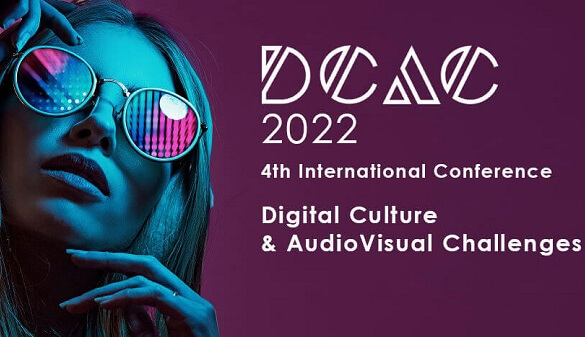Το έργο C.Cage στο 4o Διεθνές Συνέδριο DCAC-2022

Με τίτλο "C.CAGE (Corfu Cultural Adventure GamE): An Immersive Adventure Game to Showcase the History, Tradition, Art, and Local Creativity of Corfu", το έργο C.Cage συμμετείχε στις εργασίες του 4ου Διεθνούς Συνεδρίου "Digital Culture & AudioVisual Challenges - Interdisciplinary Creativity in Arts and Technology", που πραγματοποιήθηκε 13 και 14 Μαΐου 2022.
Περίληψη συμμετοχής:
In recent years, Augmented Reality (AR) technologies and techniques have been increasingly utilized not only to create exciting entertaining experiences, but also to address the modern challenges of formal and informal education. By enriching the real environment with virtual information and facilitating user interaction with the elements of the augmented world, AR design can deliver immersive learning environments, in which users actively explore their surroundings and experientially connect with the represented content. Museums and cultural institutions all over the world are adopting AR methods to offer their visitors more autonomous and customized tours through archaeological sites, tourist destinations, and cultural exhibits. However, the cases, in which these AR cultural experiences are enhanced by game elements, are scarce, and thus the educational and entertaining benefits of gamification, such as player motivation, engagement, flow, and reward, are mostly neglected,
This paper introduces C.CAGE, an Augmented Reality adventure game designed to promote history, tradition, art, and local creativity in Corfu town, Greece. The focus of the paper lies in demonstrating the correlations established between the game's structure, content and mechanics, and the targeted cultural information. More specifically, the design process is analyzed into the following aspects: (i) structuring the game in alignment with the promotion of cultural heritage, (ii) shaping the cultural information into storytelling elements, (iii) juxtaposing interaction mechanisms onto learning mechanics, (iv) composing the game's audiovisual content, and (v) developing an in-game system for the project's dissemination to the local community and its future expansion.
Furthermore, technical and functional characteristics are briefly discussed. The game is realized as an application that can be used on portable computing devices, i.e. smartphones and tablets. A tutorial is included as an essential component for guiding players throughout the process. Representation modes can be enhanced to address accessibility issues. It is our intention that our hitherto experience in dealing with conceptual and practical design challenges will contribute in providing a framework for the development of AR games in the wider context of cultural heritage.
Συγγραφική ομάδα:
Emmanouel Rovithis, Vasileios Komianos, Konstantinos Vogklis, Minas Pergantis, Nikolaos Moustakas, Katerina Kontopanagou, Athanasios Tsipis, Apostolos Loufopoulos, Tania Tsiridou, Andreas Floros, Andreas Giannakoulopoulos
Βλ. επίσης: https://avarts.ionio.gr/dcac/2022/en/presentations/524/



